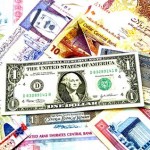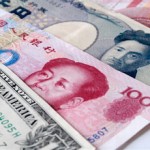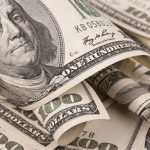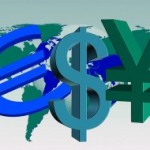Dollar’s Strongest Rally in Six Years Stalls Before Jobs Report
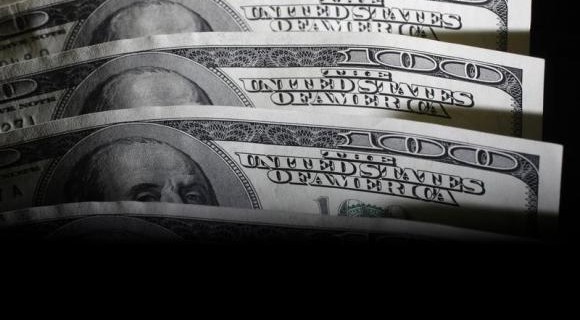
The dollar’s strongest annual rally in six years stalled amid speculation the currency’s advance has been too rapid before U.S. data tomorrow forecast to show job growth slowed.
Australia’s currency rebounded from near the weakest in four years after the Reserve Bank kept its benchmark interest rate at a record low. The Bloomberg Dollar Spot Index rose 8.3 percent this year, poised for its best gain since 2008, while its relative strength last week breached the 70 level that signals to some traders an asset may reverse course. U.S. Treasury yields were below this year’s averages.
“U.S. yields can’t really go up in an environment where yields aren’t rising globally, so there’s going to be profit taking on dollar positions,” said Naohiro Nomoto, an associate for currency trading at Bank of Tokyo-Mitsubishi UFJ Ltd. in New York. “Eventually though, the dollar will strengthen, especially against the yen and euro, because of continued monetary easing” in Japan and Europe, he said.
The Bloomberg Dollar Spot Index, which tracks the U.S. currency against 10 trading partners, was little changed at 1,103.76 as of 1:07 p.m. in Tokyo from yesterday when it fell 0.3 percent. It closed at 1,106.90 on Nov. 28, the highest level since March 2009.
The dollar traded at 118.37 yen from 118.40 yesterday, when it touched 119.14, the strongest since August 2007. The euro was little changed at $1.2468 and 147.58 yen.
Aussie Rebounds
The Aussie rose 0.3 percent to 85.14 U.S. cents from yesterday, when it reached 84.17, the lowest since July 2010. The
Reserve Bank of Australia held the key rate at 2.5 percent today, as predicted by all 30 economists surveyed by Bloomberg.
“The Australian dollar remains above most estimates of its fundamental value, particularly given the significant declines in key commodity prices in recent months,” the central bank said in a statement after the decision.
Deutsche Bank AG earlier today changed its outlook for RBA policy, calling for 50 basis points of cuts in the overnight cash rate in 2015, according to an e-mailed statement.
The U.S. dollar has declined after the past two monthly payrolls reports. Companies in the U.S. probably added 222,000 workers last month, after increasing positions by 230,000 in October, according to the median estimate of economists surveyed by
Bloomberg News before data from the Roseland, New Jersey-based ADP Research Institute tomorrow. The Labor Department reports on employment on Dec. 5.
The 10-year U.S. Treasury yielded 2.23 percent, lower than this year’s average of 2.56 percent.
Moody’s Cuts
The yen maintained yesterday’s gain after Moody’s Investors Service cut Japan’s credit rating to A1 from Aa3, citing heightened uncertainty over the nation’s fiscal deficit-reduction goals. The yen rallied versus most of its 31 major peers.
Prime Minister Shinzo Abe officially starts his campaign today for a new mandate to pursue his economic program consisting of monetary easing, fiscal stimulus and structural reforms, before national elections Dec. 14. In an Asahi newspaper poll, 47 percent of respondents said the economy would be an important factor in their decision.
“The downgrade casts doubt on Abenomics, which is the driver of yen weakness,” analysts at ANZ Bank New Zealand Ltd., including Auckland-based senior currency strategist Sam Tuck, wrote to clients in a note dated today. “The yen strengthened as the move highlights the challenges Abenomics faces.”
Source: Bloomberg – Dollar’s Strongest Rally in Six Years Stalls Before Jobs Report









